| |
| 1900 |
Partial
performances of the complete "Christus" Mysterium highlight
the year for Draeseke and he completes no new compositions, though
he writes the text for a new opera, "Merlin", and begins
the composition of his Quintet
in F major for Two Violins, Viola, and Two Celli, Op. 77 |
| 1901 |
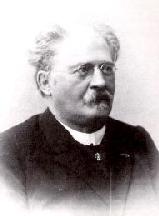 In
February Draeseke completes his String
Quintet in F major, Op. 77.
This is followed by the Melodrama, "Der
Monch von Bonifazio" (The Monk from Bonifacio, for Recitation
with Piano) Op. 74 and Drei geistliche Gesänge (Three Spiritual
Songs for Voice and Piano), Op. 75. The
Overture to "Bertran de Born" is
premiered in Dresden (O. Hermann). In
February Draeseke completes his String
Quintet in F major, Op. 77.
This is followed by the Melodrama, "Der
Monch von Bonifazio" (The Monk from Bonifacio, for Recitation
with Piano) Op. 74 and Drei geistliche Gesänge (Three Spiritual
Songs for Voice and Piano), Op. 75. The
Overture to "Bertran de Born" is
premiered in Dresden (O. Hermann). |
| 1902 |
Begun
in October 1901, Draeseke's Sonata No. 2 in F major for Viola
alta and Piano, WoO 26 is finished in the second week of January.
Draeseke writes an essay on Berlioz for "Die Musik" (Music) and
a textbook, Der gebundene Styl: Lehrbuch f'ür Kontrapunkt und
Fuge" (The Strict Style: A Textbook for Counterpoint and Fugue).
At his own expense Draeseke subsidizes the printing of the vocal
scores for the Mysterium: "Christus". |
| 1903 |
Draeseke's
symphonic poem "Thuner See" (Lake Thun), WoO 27 is completed
in April. For the remainder of the year his compositional powers
are concentrated on the opera "Merlin", WoO 30, though a short
work for four-part women's chorus, "Getrennte Wege" (Parted Ways
after Baumbach), WoO 28 is written and published without a catalog
number in a collection (ed. Bernhard Schneider) |
| 1904 |
Grillparzer's "Der
Traum ein Leben" (Dream is Life) is the subject for Draeseke's
symphonic prelude of the same title, WoO 29, completed in January. |
| 1905 |
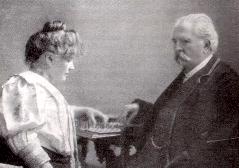 Felix
Draeseke's 70th birthday year is greeted with great notice in music publications and the press. Innumerable performances mark the event,
notably the premieres of the opera "Fischer und Kalif" (Fisher
and Caliph), WoO 24 (Prague/Pollak) and the symphonic prelude
for Grillparzer's "Der Traum ein Leben" (Dream is Life),
WoO 29 (Dresden/Schuch). The instrumentation for the opera "Merlin",
WoO 30 is completed and Draeseke's declares it finished in August. Felix
Draeseke's 70th birthday year is greeted with great notice in music publications and the press. Innumerable performances mark the event,
notably the premieres of the opera "Fischer und Kalif" (Fisher
and Caliph), WoO 24 (Prague/Pollak) and the symphonic prelude
for Grillparzer's "Der Traum ein Leben" (Dream is Life),
WoO 29 (Dresden/Schuch). The instrumentation for the opera "Merlin",
WoO 30 is completed and Draeseke's declares it finished in August. |
| 1906 |
The "Trauermarsch " (Funeral
March for Orchestra) Op. 79, written in memory of the German
soldiers fallen in colonial combat, "Frühlingsgruß" (Spring's
Greeting, for Voice and Piano after G. Haebler), Op. 78, "Der
traurige König" (The Sad King, for Voice and Piano after Mörike),
Op. 80 and Four Songs for Voice and Piano after Mörike, Op. 81
are Draeseke's sole compositions for the year. "Merlin" is premiered
in Gotha, but later revised somewhat in August. Draeseke is named "Geheim
Hofrat" (Privy Councilor) by the King of Saxony. Outraged by
the "immorality" of Richard Strauss' new opera "Salome", Draeseke
pens his polemic "Konfusion in der Musik" (Confusion in Music). |
| 1907 |
The
year might be called the "Goethe year" for Draeseke since his
only completed compositions, aside from a setting of Psalm 57
for Baritone, Mixed Chorus and Orchestra, WoO 31, are on Goethe
texts: "Faust im Schlaf Gesungen - Geistergesang aus 'Faust'" (Sung
to Faust in His Sleep - Song of the Spirits from "Faust", for
Mixed Chorus and Orchestra), WoO 32 and "Parzengesang aus
Gothes 'Iphigenie'" (Parzen Song from Goethe's "Iphigenie
on Tauris" for Alto and Orchestra), WoO 33. |
| 1908 |
The
composer's WoO 34, "Wunder" (Marvel, Song for Voice
and Piano after F.T. Vischer) is published. Draeseke spends most
of his time composing his Grand Mass in A minor for a-capella
Mixed Chorus, Op. 85, which he finishes the following
year. |
| 1909 |
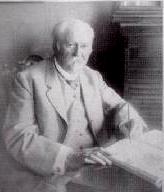 In
January, Draeseke completes his Grand
Mass in A minor for a-capella Chorus, Op. 85. It is premiered
in Chemnitz (Stolz) in October. In
January, Draeseke completes his Grand
Mass in A minor for a-capella Chorus, Op. 85. It is premiered
in Chemnitz (Stolz) in October.
Draeseke is already composing
his second Requiem Mass, the Requiem,
in E minor, for a-capella chorus. |
| 1910 |
In
the first week of his 75th birthday year Draeseke completes his
Requiem in E minor for
A-capella Chorus, WoO 35 and at the end
of the year, the Konzertstück "Feenzauber" (Concert
Piece, "Fairy Magic" for Harp and Orchestra), WoO 36. Many performances
in honor of his birthday. |
| 1911 |
Draeseke
composes his last chamber works: the Kleine
Suite (Little Suite) for English Horn and Piano, Op. 87,
and the Suite for Two Violins, Op 86. A collection of four fugues
for unspecified ensemble are
completed (WoO 37). Draeseke finishes dictating to his wife his "Lebenserinnerungen" (Memoirs),
which remain unpublished to this day. |
| 1912 |
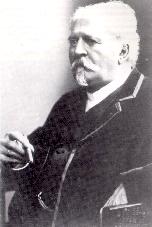
In
February Draeseke hears the first full performance, on three
evenings, of his Mysterium in a Prologue and Three Oratorios, "Christus".
Draeseke completes his last orchestral work, the, Symphony No. 4 in E minor, "Sinfonia Comica", WoO 38 in late August.
In
September he finishes his last compositions, Four Songs on
Texts of Grete Ihle for Voice and Piano, WoO 39.
In
November Draeseke, now almost completely deaf, takes ill, and
never again leaves his house. |
| 1913 |
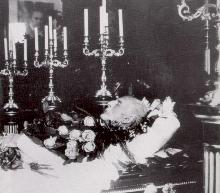 On
26 February, Draeseke suffers a stroke and dies. He is buried
on 1 March in the Tolkewitz cemetery in Dresden. On
26 February, Draeseke suffers a stroke and dies. He is buried
on 1 March in the Tolkewitz cemetery in Dresden.
It
is known that before his death Draeseke had planned yet another
opera, "Die Weiber von Weinsberg" (The
Women of Weinsberg), a sextet for strings, and a second piano
sonata, though no sketches have survived. |
| 1935 |
Felix Draeseke's centenary - The National Socialists promote Draeseke with Festivals held in Coburg, Dresden, and other cities throughout Germany. |
| 1942 |
Felix Draeseke's widow, Frida, follows him to the grave on 14 November. |
Note  : This icon indicates that there is original material regarding this event in the Ebert collection. Click the icon to view those pages. : This icon indicates that there is original material regarding this event in the Ebert collection. Click the icon to view those pages. |
|
|
 In
February Draeseke completes his
In
February Draeseke completes his  Felix
Draeseke's 70th birthday year is greeted with great notice in
Felix
Draeseke's 70th birthday year is greeted with great notice in  In
January, Draeseke completes his
In
January, Draeseke completes his 
 On
26 February, Draeseke suffers a stroke and
On
26 February, Draeseke suffers a stroke and